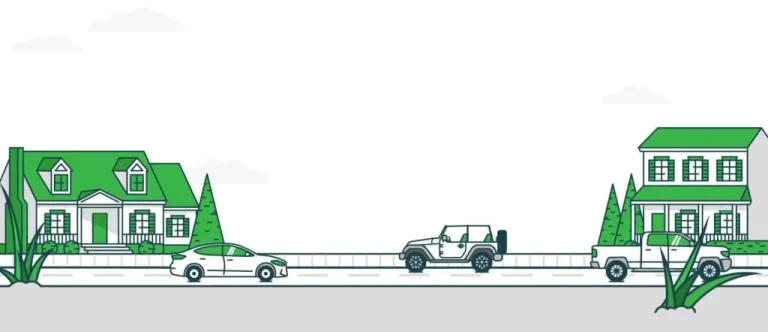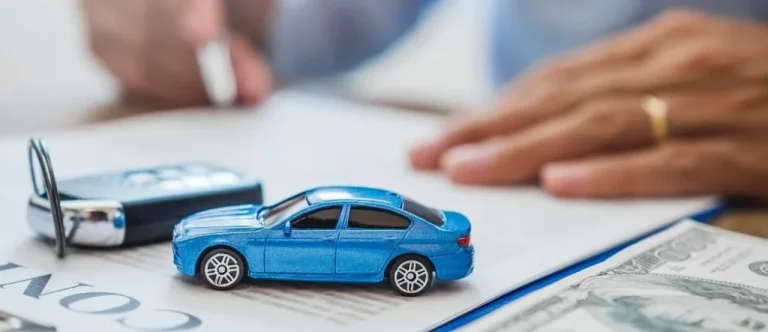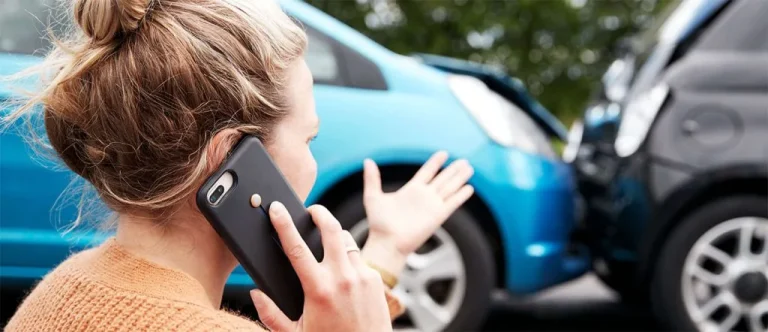Many people don’t buy a car outright; they finance it. After the sticker price, tax, tag and title are calculated, your head may still be spinning while thinking about the whirlwind of emotions. Getting a new car is exciting, but it can be expensive, especially once you tack on auto insurance.
But don’t worry — we’ve got you covered. These are the key details about required insurance on financed cars.
Do You Need Full Coverage on a Financed Car?
Yes, the required policy for car insurance for financed cars is a full coverage policy while your loan is active. The lender still, technically, owns any vehicle that still has a balance left on the loan. Thus, lenders require clients to maintain full coverage auto insurance to protect their investments.
In 2022 alone, the total cost of damage caused by vehicle crashes tallied up to about $481.2 billion. This statistic is reason enough to understand why your lender would want to protect their investment, as crashes are clearly common and costly.
Let’s say a financed vehicle still has $6,000 left on the loan and is totaled in an accident that was that driver’s fault. The driver still has to pay the balance of the loan, and that’s where full coverage auto insurance comes into play.
If the driver simply had liability coverage, the auto insurance company wouldn’t pay a penny toward the claim. However, with full coverage, the insurance company would cut the check directly to the lender to pay down the loan.
Since full coverage is one of the auto loan insurance requirements, once the financed vehicle is paid in full, the driver can then opt to downgrade to liability coverage. However, each driver should evaluate their situation to determine if liability or full coverage is right for them.
Do You Need Full Coverage on a Used Financed Car?
Car insurance requirements for financed cars, used or unused, require policyholders to maintain a full coverage policy. This is because your lienholder, or the company to whom you make payments on your loan, wants to protect their investment in your vehicle.
Maintaining full coverage on a financed car, whether it’s used or new, helps ensure it’s protected in many situations where damage can occur. Without full coverage, you would be expected to pay out of pocket for any repairs to your vehicle after a crash or accident, which many people can’t afford to do.
Do I Need Comprehensive Insurance on a Financed Car?
Yes, one of the financed car insurance requirements when you sign a loan for a car is comprehensive coverage. Comprehensive coverage helps cover the cost of repairs to your vehicle if it’s damaged while you aren’t behind the wheel or on the road.
So, damage that occurs to your car while it’s parked is covered by this coverage. This means if a covered peril on your policy like fire, hail, wind, or theft causes damage to your financed car, it’s covered with your full coverage car loan car insurance.
Can You Have Liability Insurance on a Financed Car?
No, you can’t have liability coverage on a financed car, as a full coverage policy is one of the car insurance requirements for financed vehicles. If you downgrade to liability insurance while you still owe money on the car, you are violating the contract with your lender, legally allowing them to cancel your loan and take your vehicle away.
While you technically keep your car finance with car insurance that only includes liability coverage, you should never do this. It would be only a matter of time before your lender notices and takes action. Even if your lender doesn’t notice and take the vehicle back, you’d still be fully responsible for any damages that occur to the vehicle.
How Does My Lienholder Know if I Drop Full Coverage?
Since full coverage is what insurance is required for a financed car, your lienholder would notice if you dropped your coverage down to liability-only from full coverage. Since your lienholder is technically the one paying your loan, they’re listed as a contact on your insurance policy.
So, since auto loan insurance requirements mandate drivers maintain full coverage, and your lienholder is listed as a contact on your insurance policy, they would be notified if you make any changes to your policy, like lowering your coverage limits. This could open you up to repercussions, like having your vehicle taken away or your lender purchasing force-placed insurance on your behalf.
Force-placed insurance is a type of policy a lender might bind on behalf of a loanee. Typically, force-placed insurance policies serve the lender’s best interest in terms of coverage. This means they’re often more expansive and expensive than the policy you may select for yourself.
Why Do Dealerships Require Full Coverage Insurance?
Full coverage tends to be a financed vehicle insurance requirement because it provides the dealership peace of mind when loaning you your vehicle. With a full coverage policy, your car dealer ensures that any damage to the vehicle can be repaired.
There aren’t many car dealerships that don’t require full coverage insurance, or any trustworthy ones, for that matter. This is because full coverage protects you and your vehicle in an accident, regardless of who caused it, whereas liability coverage only covers the victim in an accident. So, if you were to cause an accident in a car that you finance while maintaining liability only, you would be out of luck.
So, if you’re part of the 40% of Americans who have a monthly car payment, you’ll want to ensure your insurance coverage is meeting your lender’s requirements.
Can You Remove Insurance on a Financed Car?
While technically you can remove insurance on a financed car, you definitely shouldn’t. Having no insurance on financed cars is dangerous, illegal in most states, and can open you up to all kinds of financial trouble. It may even result in you having your license suspended and your vehicle taken away.
A minimum amount of auto insurance is required in almost every state (except for New Hampshire and Virginia), so driving without any insurance, whether you own the vehicle or not, is likely illegal. If you were to drop or lapse your policy on your financed car, it would only be a matter of time before your lienholder noticed and took action, which could wind up being much more costly than your insurance premium.
So, maintaining the minimum full coverage for financed cars required by your lender is not only safer for them but safer for you too. Without auto insurance, you could be in a lot of legal and financial trouble.
How to Get Auto Insurance for a Financed Car
When financing a car insurance can get pricey, considering the full coverage policy you’ll need. Getting an auto insurance policy for a financed car (or any vehicle for that matter) is extremely easy and fast with Clovered.
Simply fill out our online auto insurance form, and one of our many licensed agents will pair you with the perfect policy for your needs. If you’d rather talk to one of our in-house pros, you can contact a licensed agent at 833-255-4117 or agent@clovered.com.
The editorial content on Clovered’s website is meant to be informational material and should not be considered legal advice.




